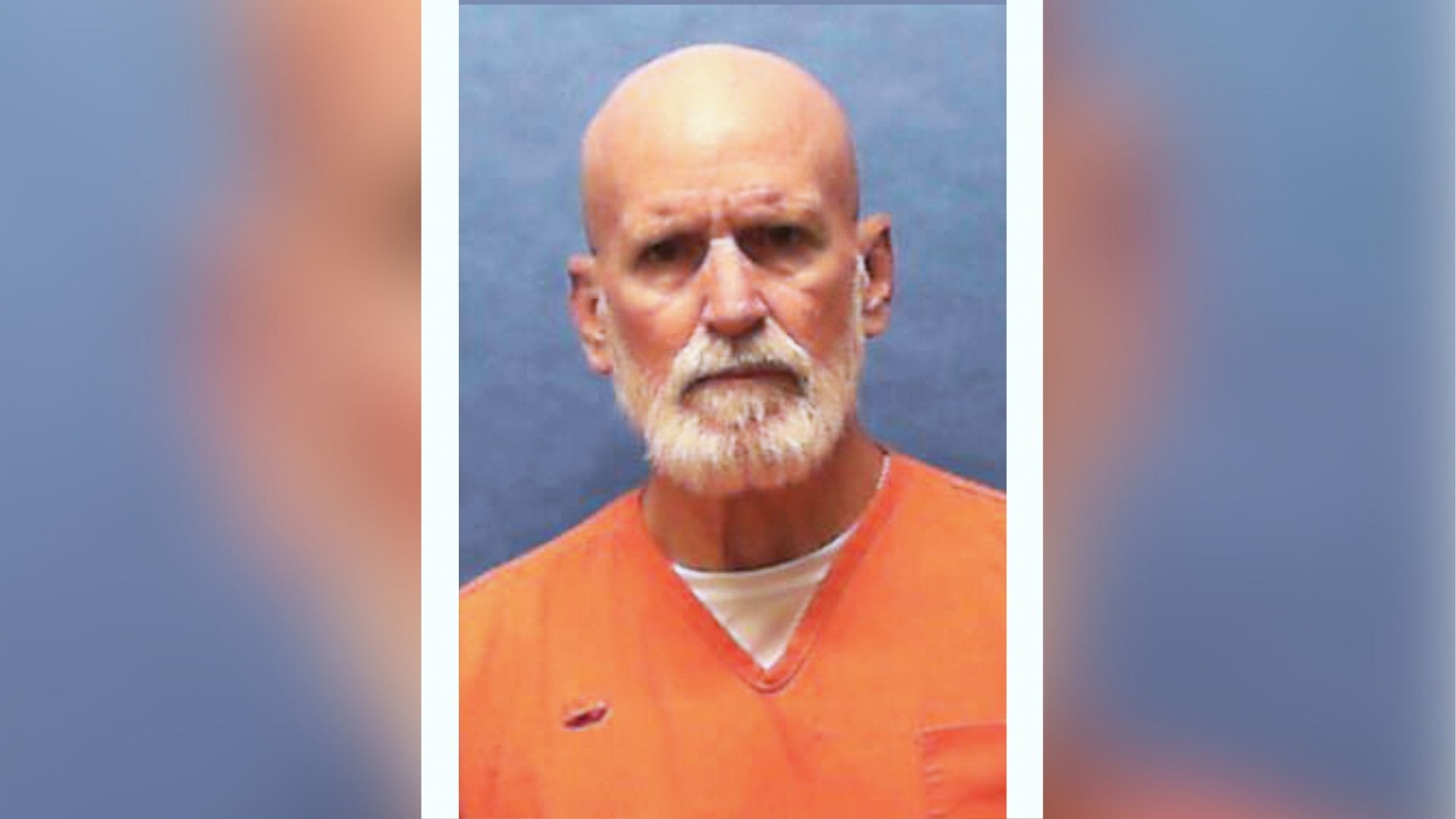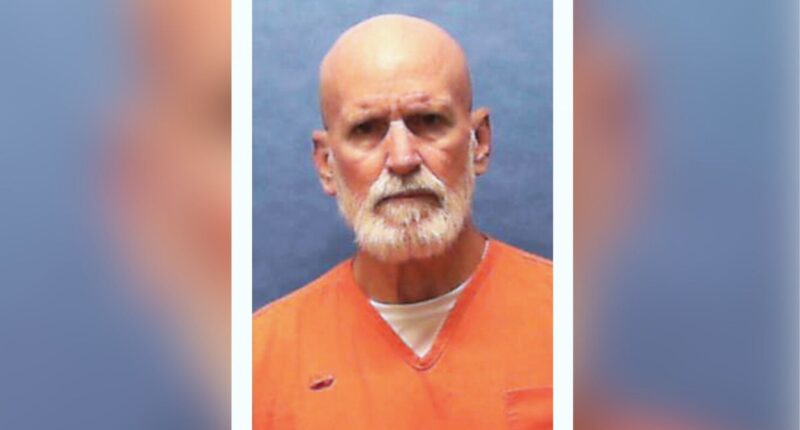Share this @internewscast.com
A former Marine, convicted of a heinous crime over 40 years ago, is slated for execution in Florida on Thursday. This event marks the 16th execution under the administration of Republican Governor Ron DeSantis, setting a record.
Unless a last-minute intervention occurs, 66-year-old Bryan Frederick Jennings will face lethal injection at Florida State Prison near Starke at 6 p.m. on Thursday. Jennings has faced the death penalty twice for the murder committed in 1979 in Brevard County, with both sentences previously overturned on appeal. His third and final trial in 1986, however, upheld the death sentence.
On Wednesday, the U.S. Supreme Court rejected Jennings’ final appeal. His execution is among three scheduled this week.

Court documents reveal that Jennings was just 20 years old and on leave from the Marine Corps on May 11, 1979, when he removed a screen from the bedroom window of 6-year-old Rebecca Kunash while her parents were in another part of the house.
According to trial testimony, Jennings kidnapped Rebecca, transported her by car to a canal, and sexually assaulted her. He then violently swung her by her legs, causing a fatal skull fracture. Following this, he drowned her in the canal, where her body was discovered later that day.
Jennings was apprehended a few hours later due to a traffic warrant. Investigators found that he matched the description of a man seen near the Kunash residence at the time of Rebecca’s disappearance. Further evidence included shoe prints at the scene that matched those worn by Jennings, his fingerprints on the windowsill, and his wet clothing and hair.
DeSantis has ordered more executions in a single year than any Florida governor since the death penalty was reinstated in 1976. The previous record was set in 2014 with eight executions. After Jennings, executions this year are scheduled Nov. 20 for Richard Barry Randolph and Dec. 9 for Mark Allen Geralds, which would bring the year’s total so far to 18.
At a recent news conference, DeSantis explained the unprecedented number of executions by saying his goal is to bring justice to victim families who have waited decades for the death sentences to be carried out.
“Some of these crimes were committed in the ’80s,” DeSantis said. “Justice delayed is justice denied. I felt I owed it to them to make sure this ran very smoothly. If I honestly through someone was innocent, I would not pull the trigger.”
Jennings has filed numerous appeals in state and federal courts, most recently contending that he went months without a lawyer prior to DeSantis signing his death warrant in violation of his right to counsel. His current attorneys also say Jennings has improperly not had a clemency hearing since 1988.
An anti-capital punishment group, Floridians for Alternatives to the Death Penalty, sought U.S. Supreme Court review of the issues and what it called the politicization of the process.
“Florida’s death penalty system has become unrecognizable from the one the law promises,” said Maria DeLiberato, legal and policy director for the group. “Bryan Jennings was left without a state court lawyer for years, denied a clemency review in this century, and then selected for execution because of favorable political timing.”
In addition to the murder conviction, Jennings was sentenced to life in prison for kidnapping, sexual assault and burglary.
In Oklahoma, Tremane Wood was scheduled to receive a lethal injection on Thursday. In South Carolina, Stephen Bryant was scheduled to die by firing squad on Friday.
A total of 41 people have died by court-ordered execution so far this year in the U.S., and at least 18, including Jennings, Wood and Bryant, were scheduled to be put to death during the remainder of 2025 and next year, according to the Death Penalty Information Center.
Florida’s lethal injections are carried out with a sedative, a paralytic and a drug that stops the heart, according to the state Department of Corrections.
.

















